Budgeting tools and apps have revolutionized the way people manage their finances by offering a streamlined and efficient way to track spending and plan ahead. These digital solutions provide users with the ability to see a full picture of their income and expenses, helping them make informed decisions. In the middle of this financial transformation, financial planning apps act as essential companions for anyone seeking control over their money, moving beyond traditional methods to deliver automation and real-time insights that adapt to modern lifestyles.
Key Features of Modern Budgeting Apps
A major reason why financial planning apps have gained popularity is the rich set of features they offer. Users benefit from automatic transaction syncing, intelligent categorization, and customizable alerts, all designed to simplify money management. In the heart of their functionality, budgeting tools and apps provide users with data-driven insights and goal-tracking capabilities, empowering them to stay motivated and organized as they build healthier financial habits over time.
Why Budgeting Tools and Apps Matter
The significance of financial planning apps lies in their ability to provide clarity and control over personal finances. Many individuals struggle with overspending or saving inconsistently, but by using these tools, they gain awareness of where their money is going. Right in the middle of managing cash flow and financial stress relief, budgeting tools and apps deliver structured frameworks that foster responsible spending and help users avoid unexpected shortfalls.
Popular Budgeting Apps for Beginners
For those just starting out with financial management, financial planning apps tailored to beginners make the process accessible and non-intimidating. Apps like Mint and YNAB simplify the learning curve by offering intuitive interfaces and easy-to-follow budgeting frameworks. Placed centrally in these platforms’ design are budgeting tools and apps that automatically categorize transactions and provide actionable tips, helping newcomers feel confident and supported on their financial journey.
Advanced Tools for Experienced Users
Users with more complex financial needs often turn to financial planning apps that offer in-depth analysis and customization. Platforms such as PocketSmith and Tiller Money provide forecasting and investment tracking, giving seasoned users powerful tools to manage multiple income streams and plan for the future. At the core of these offerings, budgeting tools and apps enable detailed control and strategic decision-making that goes beyond basic expense tracking.
Budgeting Tools for Couples and Families
Sharing financial responsibilities is easier with financial planning apps designed for multiple users. Couples and families can collaborate seamlessly, thanks to apps like Honeydue and Zeta, which allow joint budgeting and shared goal-setting. These solutions place budgeting tools and apps in the center of household money management, improving communication and transparency among partners and reducing money-related conflicts.
Integrating Budgeting with Financial Goals

Budgeting tools and apps excel when they connect daily spending habits with long-term financial aspirations. By allowing users to set goals such as saving for a home or paying off debt, these platforms make budgeting purposeful. Embedded in the core of financial planning apps are visual progress trackers and reminders that help users stay on course, making the budgeting process motivating rather than burdensome.
Customizability and Flexibility in Budgeting Apps
One of the key advantages of financial planning apps is their flexibility to suit different lifestyles and financial circumstances. Whether managing irregular income or tracking cash expenses, users can customize categories and budgets to fit their unique needs. Sitting at the heart of this adaptability, budgeting tools and apps offer personalization features that enhance user engagement and ensure that financial planning remains relevant and effective over time.
The Role of AI and Automation in Budgeting
Artificial intelligence and automation have transformed budgeting tools and apps into proactive financial assistants. Many platforms now analyze spending patterns and predict cash flow needs, providing users with timely alerts and smart recommendations. In the middle of these innovations, budgeting tools and apps automate tedious tasks like bill payments and expense categorization, freeing users to focus on higher-level financial goals and decision-making.
Security and Data Protection in Budgeting Apps
Security is a paramount concern for anyone using financial planning apps, given the sensitive financial data involved. Leading platforms implement strong encryption and multi-factor authentication to safeguard user information. At the core of trustworthy financial planning apps is a commitment to privacy and transparency, reassuring users that their data is handled responsibly and protected from unauthorized access.
Conclusion of Budgeting Tools and Apps
In summary, financial planning apps provide powerful and accessible ways to manage personal finances with confidence and clarity. Whether for beginners or advanced users, these digital solutions offer a variety of features that streamline budgeting, promote goal achievement, and reduce financial stress. Positioned at the center of modern financial management, financial planning apps continue to evolve, empowering individuals and families to take charge of their money and secure their financial future.
